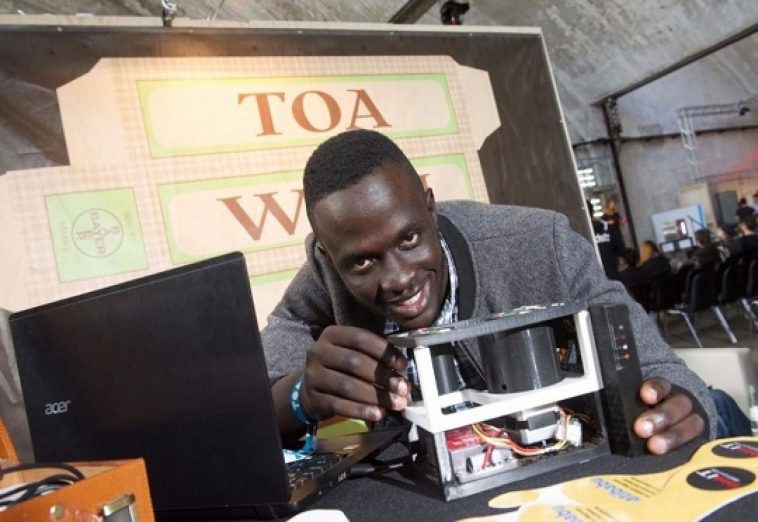Founded by the Royal Academy of Engineering in the UK, the Africa Prize for Engineering Innovation is one of the biggest engineering awards in Africa that majors in engineering innovation. It helps talented engineers from sub-Saharan Africa across all disciplines to come up with innovations that address real challenges in their communities in a modern and appropriate way.
Brian Gitta walked away with $25,000 (124 million Ugandan shillings) in the fourth Africa Prize for Engineering Innovation. The 24-year-old software engineer from Uganda become the first Ugandan to win the prize and the also the youngest holder of the prize up to now. Gitta together with his team came up with Matibabu. This is a device that tests for malaria without the need of taking blood samples. Matibabu is a Swahili word meaning medical center. This is a reusable device of low cost that clips onto the finger of a patient. Moreover, it does not require any special expertise to use. Matibabu gives out the patient’s results in one minute on a mobile phone linked to the device.
The award ceremony took place in Nairobi the Kenyan capital last week. The ceremony saw four finalists from sub-Saharan Africa gave their presentation. This took place in the glare of Africa Prize jury and live audience who voted for the most promising engineering innovation. According to Rebecca Enonchong, the judge at Africa Prize, the group was proud of the winners of 2018. They showed a good example of how engineering can promote development more so by improving healthcare. She added that Matibabu app is just but a game changer.
Three other selected runners-up each pocketed £10,000, and they were Nigerian based Ifediora Ugochukwu for his iMeter. iMeter is an intelligent metering system that gives users in Nigeria transparency and control over the supply of their electricity. Collins Saguru from Zimbabwe who works in South Africa was selected for his AltMet. AltMet is an environmentally friendly method for recovering good metals from car parts at a low-cost. The third one was Ghanian Michael Asante-Afrifa for his Science Set. This is a mini science lab that has in it experiment materials that are specially developed.
Gitta showed his gratitude for winning the prestigious prize. He said that was a significant milestone for them since it proves that they can manage production using better ways to scale clinical trials and prove themselves to regulations. The fact that they are recognized will help them open their partnership opportunities. He added that such opportunities are what they currently need most. Godwin Benson, the designer of Tuteria, won the third edition in last year at the age of 27 years old. The device developed by the Nigerian is an online site that connects students to qualified tutors in their respective areas and within their budget.



